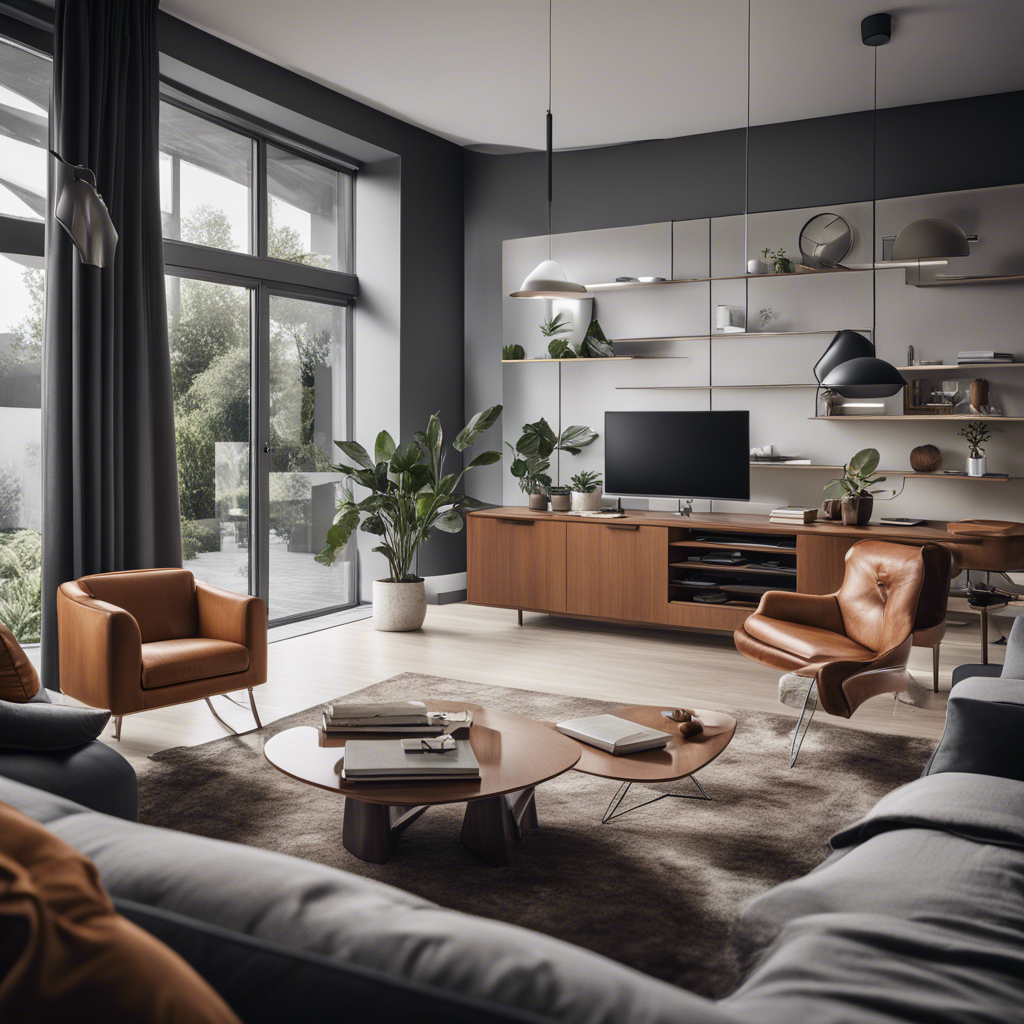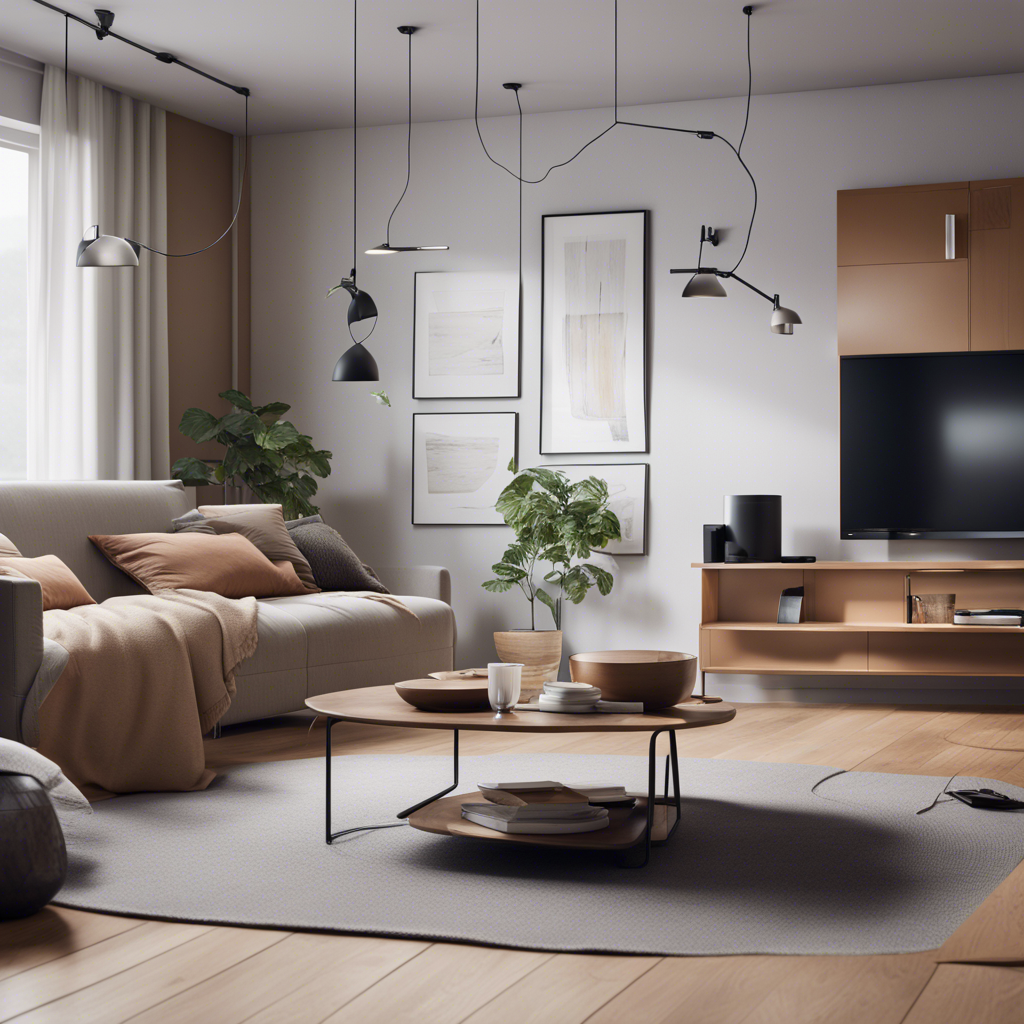Smart Home Trends You Need to Know for a Connected Lifestyle
The modern home has evolved dramatically with the integration of technology, transforming how we live and interact with our living spaces. As smart home technologies become increasingly accessible, homeowners are embracing a connected lifestyle that promises convenience, security, and efficiency. With the rapid advancements in the Internet of Things (IoT), smart devices are moving beyond luxury to necessity, significantly impacting the way we manage our homes.

In this ever-evolving landscape, it’s crucial for consumers to stay informed about the latest trends in smart home technology. As we delve into 2023, innovations are not just about device connectivity but also about creating cohesive ecosystems that enhance daily life. Renowned technology platforms like CNET and Forbes have highlighted that the future of smart homes is centered around integration, sustainability, and personalization, making it more important than ever to make informed decisions when adopting new technologies.
Emerging Smart Home Trends in 2023
Integration of Multiple Ecosystems
One of the most significant trends in smart home technology is the seamless integration of diverse ecosystems. Homeowners are no longer confined to brand-specific devices, as platforms like Matter and Zigbee facilitate interoperability. This standardization is an exciting development in home automation, allowing devices from different manufacturers to communicate effectively.
For example, you can control smart gadgets from Apple, Google, and Amazon under one unified setup. This integration not only simplifies the user experience but also optimizes device performance and can potentially reduce the overall cost of setting up a smart home by eliminating the need for multiple apps or interfaces.
Sustainable Smart Solutions
As environmental concerns grow, sustainability is becoming a key focus in smart home development. Energy-efficient technologies such as smart thermostats, LED lighting, and solar-powered devices are leading the charge. These innovations not only help reduce the environmental footprint but also result in cost savings for homeowners over time.
Products like the Nest Learning Thermostat and EcoSmart lighting solutions exemplify this trend by automatically adjusting to optimize energy usage based on user habits and preferences. By integrating these technologies, homeowners can achieve a more sustainable living while enjoying significant reductions in energy bills.
Advanced Home Security
The demand for smart home security systems continues to surge as homeowners seek peace of mind. Modern systems offer advanced features such as real-time alerts, remote monitoring, and AI-driven analytics to enhance home security. Devices like Ring doorbells and Arlo cameras provide high-definition surveillance and can be integrated with other smart home technologies for comprehensive security solutions.
These systems not only deter potential intruders but also offer features such as facial recognition and package detection, making them invaluable in modern homes. As AI technology improves, we can expect even more sophisticated security solutions to emerge, cementing their role in a connected lifestyle.
Adopting Smart Home Technology for Everyday Use
Affordable Smart Home Technology Options
With more affordable smart home technology options available, integrating intelligent devices is more attainable than ever. many manufacturers offer budget-friendly versions of popular gadgets, allowing consumers to gradually build their ideal smart home without significant upfront investment.
Platforms such as Walmart and Home Depot feature a wide range of cost-effective smart home devices, from smart plugs to voice-controlled hubs, enabling users to start small and expand over time. These options make it feasible to create an efficient and connected lifestyle without breaking the bank.
Smart Devices for Health and Wellness
The intersection of health and technology is also becoming more prominent with the rise of smart devices focused on wellness. Products like smart air purifiers, sleep monitors, and fitness trackers enhance personal well-being by providing valuable insights and automated adjustments to daily routines.
Brands like Dyson and Fitbit integrate advanced sensor technology in their products, enabling users to maintain optimal health conditions within their homes. By prioritizing wellness, these innovations empower individuals to take proactive steps towards a healthier lifestyle.
Home Automation and the Internet of Things
Home automation is at the core of the smart home revolution. The Internet of Things (IoT) continues to play a crucial role in connecting various smart gadgets to streamline household tasks and enhance convenience. From smart refrigerators updating us on stock levels to voice-activated lighting systems setting the ambiance, the possibilities are endless.
As IoT technology develops, the potential for further automation increases. Reports from Fast Company and other industry leaders suggest that IoT integrations will become even more intuitive and user-friendly in the near future, signaling a continuous evolution of connected living spaces.

What is the best way to start integrating smart technology into my home?
The best way to start is by identifying your needs and priorities. Begin with basic, cost-effective devices like smart plugs or lights, which offer immediate convenience and efficiency. Gradually expand your setup by adding more complex systems such as security cameras or thermostats as you become comfortable with the technology. Sites like TechRadar provide excellent guides for beginners.
How do I ensure my smart home devices are secure?
To secure your smart home devices, regularly update their software to patch security vulnerabilities. Use strong, unique passwords for each device and your Wi-Fi network. Consider setting up a separate network for your smart devices to minimize risks. Refer to resources like Consumer Reports for detailed security tips.
Can smart home technology help me save on energy costs?
Yes, smart home technology can significantly reduce energy consumption. Devices like smart thermostats and energy-efficient lighting are designed to optimize usage based on patterns and preferences, resulting in lower utility bills. Exploring solutions offered by companies like Energy Saver can lead to substantial savings.
Are smart homes only for tech-savvy individuals?
No, smart homes are designed to be user-friendly and accessible to everyone. Many devices offer intuitive interfaces that require minimal technical knowledge. With numerous guides and tutorials available online, anyone can adopt smart home technology effectively. Explore resources on The Verge for step-by-step advice.
What role does AI play in smart home technology?
AI enhances smart home technology by enabling smarter decision-making and automation. For example, AI can learn your schedule and automatically adjust your heating or lighting for comfort and efficiency. Brands like Google AI demonstrate how AI integration elevates the capabilities of smart devices.
The Future of Smart Homes and Emerging Technologies
The Role of 5G in Enhanced Connectivity
The advent of 5G technology is set to revolutionize the connected home experience. With faster data speeds and lower latency, 5G can support a significantly larger number of connected devices simultaneously, enhancing the reliability and performance of smart home systems. This advancement will enable more sophisticated home automation configurations, transforming how IoT devices interact in real-time.
According to Qualcomm, 5G deployment will support the next generation of IoT devices and facilitate advanced applications such as real-time video monitoring and immersive augmented reality experiences within the home.
Predictive Maintenance and Home Management
Predictive maintenance is another exciting frontier in smart home technology. AI and machine learning models analyze data from smart devices to predict failures or maintenance needs before issues arise, allowing homeowners to address potential problems proactively. This not only improves the longevity of devices but also minimizes disruption to everyday activities.
For instance, a smart washing machine can notify users of potential parts failures based on usage patterns, reducing downtime and repair costs. The implementation of this technology is discussed extensively by industry experts at Gartner.
Personalization and User Experience
The future of smart homes is deeply tied to personalization. As devices collect and analyze user data, they can deliver tailored experiences that cater to individual preferences and habits. This personalization ranges from customized lighting settings to bespoke entertainment options that enhance comfort and satisfaction in daily living.
Technological advancements are paving the way for intelligent systems capable of recognizing and adapting to user moods and needs, facilitating a truly personalized home environment. Insights from McKinsey Digital shed light on how personalization will shape consumer expectations in connected living.
As the landscape of smart home technologies continues to evolve, it is imperative to remain informed about these dynamic trends and advancements. A holistic understanding enables individuals to harness the full potential of a connected lifestyle, ensuring a future-proof home environment that complements the demands of modern living.
Recommended Video Topics
To complement your understanding of smart home technology and stay ahead of the curve, here are several video topics that could enhance your knowledge and implementation strategy:
- An Overview of the Latest Smart Home Gadgets and Their Applications
- How to Set Up a Budget-Friendly Smart Home Ecosystem
- The Role of AI in Elevating Your Smart Home Experience
These video topics can be explored through educational platforms like YouTube or smart home technology webinars and podcasts, providing further insights into the possibilities of connected living.



